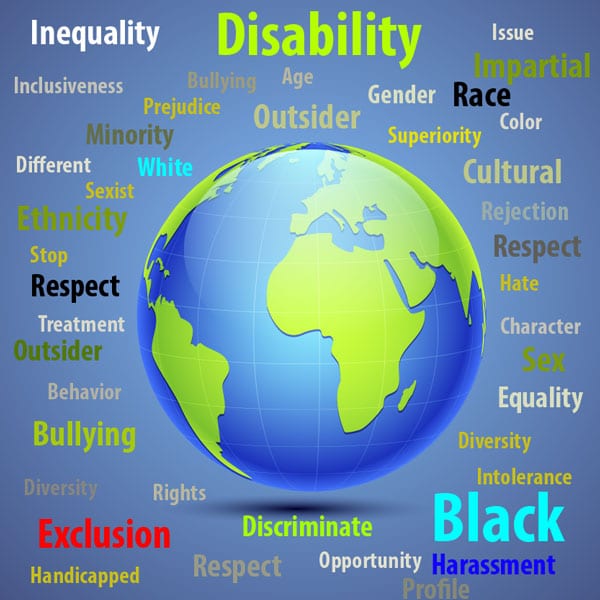Regardless of our social nature, humans may hesitate to interact with others, based on stereotypes and previous judgements. Our stereotypes of social, cultural, religious, national and ethnic groups form an important component of the impressions we have internalized towards other people. This is especially true regarding visible features, such as physical impairments, skin color, gender characteristics, racial qualities, dress, and cultural aspects that we immediately notice. When these stereotypes drive our attitudes and shape our judgements about others, they become prejudice. As managers, we must seek to overcome prejudices. Based on the quality of the prejudice, it can be either benevolent or hostile. Whether prejudice is benevolent or hostile can often be evaluated by how sincere, sociable and welcoming we are to others and how competent we perceive them to be.
Benevolent Prejudice
Benevolent prejudice exists when individuals view a particular group of people as inferior, but friendly and competent. As one Houston Portuguese translator explains, an Amazon explorer might stumble upon a remote tribe and, while thinking they are friendly, view them as simple, primitive and helpless because they have never experienced modern education and technology. Thus, while the explorer sees the tribe in a negative view, he also holds sympathy towards them. When people exhibit benevolent prejudice, they tend to communicate in condescending and disrespectful ways.
Hostile Prejudice
Hostile prejudice emerges when individuals view a group as inferior and unfriendly, perhaps even dangerous. An example of hostile prejudice is regarding an entire group of people as lazy, stupid, prone to crime or driven by violence. Individuals who display hostile prejudice often believe that the group has been given more than sufficient opportunities to improve themselves and simply cannot or will not because of their own innate limitations. When people exhibit hostile prejudice, they may use derogatory or exclusionary language and behave in dismissive and discourteous ways.
 Overcoming Prejudices
Overcoming Prejudices
To become a successful international manager, you must overcome prejudices that can be communicated through your verbal and non-verbal communication. Even if you don’t outwardly display prejudice, you may still hold deeply rooted prejudicial beliefs that govern your actions and attitudes. If so, you need to learn about the groups that you are prejudiced against. Engage in dialogue with individuals from those groups and ask them questions about themselves to alleviate your anxieties and confusion. Try to be open to engaging in new experiences and meeting additional persons from their group to remove any prejudicial barriers that may remain. If you are the victim of prejudice, try not to form a broad view about all people, based on your experience. Just because one person holds certain beliefs does not mean that all people hold those same beliefs.


 Overcoming Prejudices
Overcoming Prejudices
Great!
There is clarity of thought in your presentation